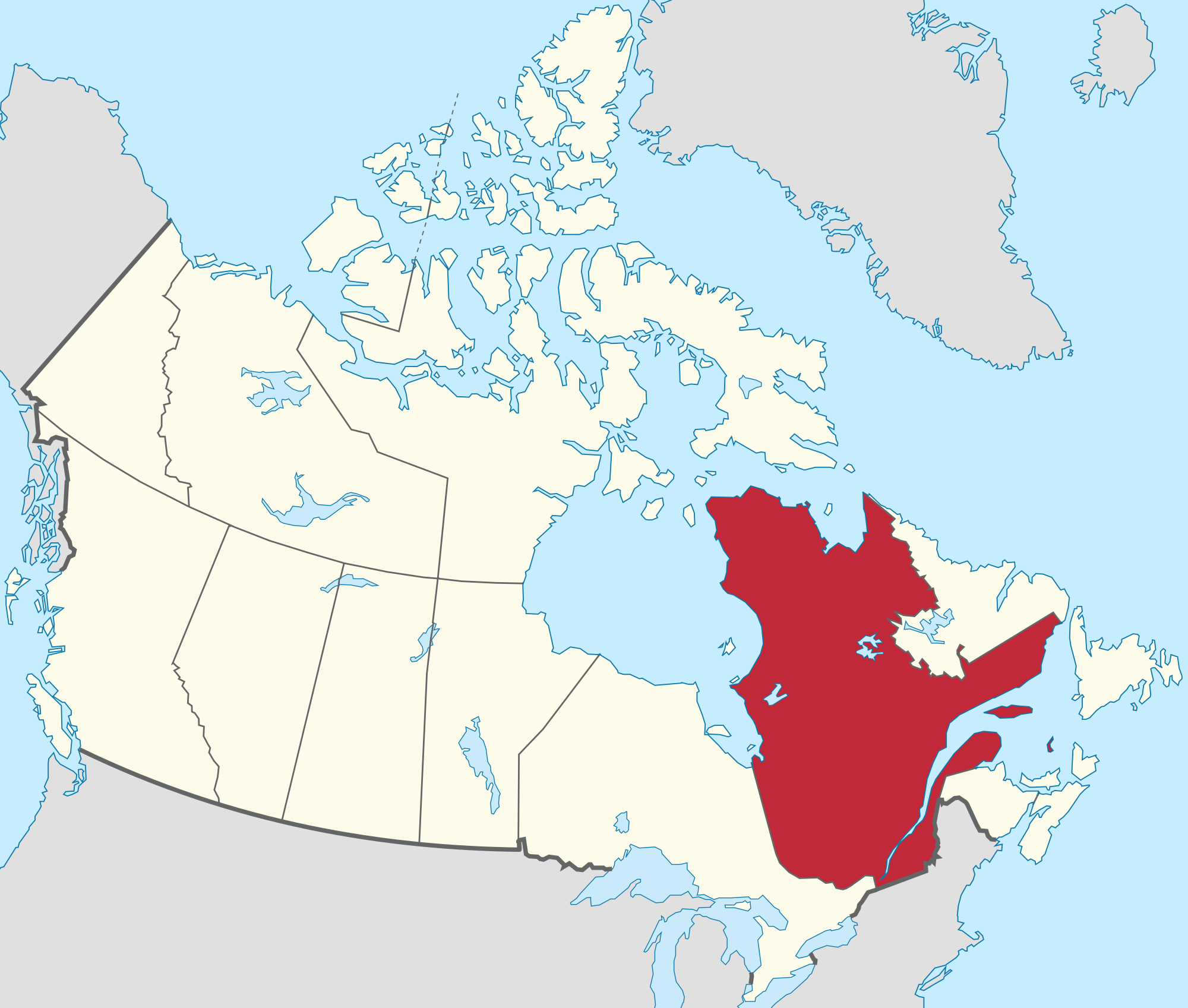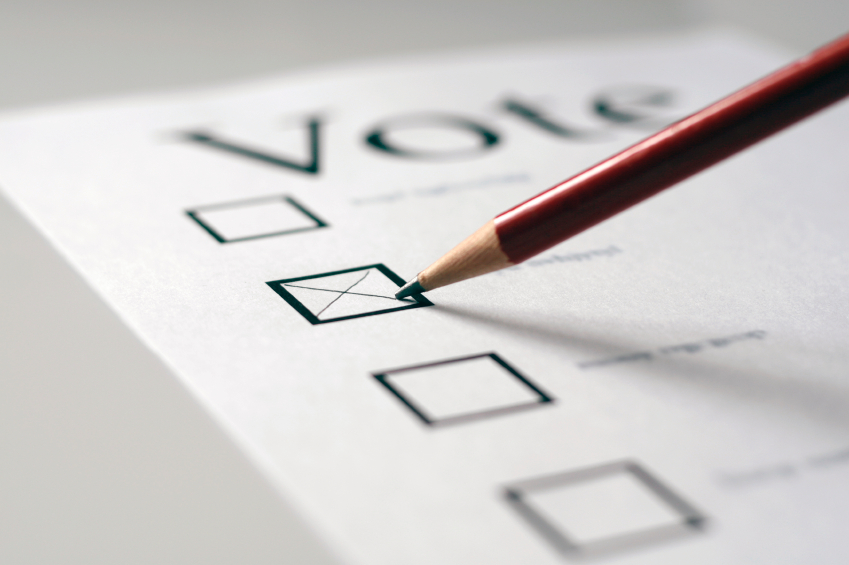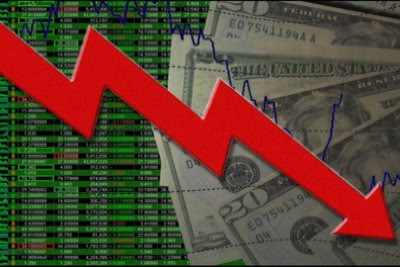 |
| But only Wolfe got a painting of a heroic death, which seems to have been a bit of a fetish among eighteenth century war heroes. |
Then there was the brief invasion of Canada in the American Revolution, then the War of 1812, then Confederation, then the railroad,
the Hudson’s Bay Company selling it’s land, the World Wars, the Cold War... then now. Not a lot of really exciting things happen in Canada, unless laying down a lot of steel over prairies and through mountains, mostly
because of bribes and corruption, is exciting.
However, in 1980, Canada came very close to breaking in two, as Quebec tried for the first time to break away and leave Canada. Well,
kinda. A “sovereignty-association,” where Quebec would be separate from Canada, but still have the same currency and an economic association. I like to call this “Nationalism Lite.” But whatever, I digress.
IRL, the election was 60-40 in favor of “No.” In 1995, the results were a lot closer, 51% to 49%. However, as I stated last Friday,
I don’t like doing AltHistory scenarios that occurred in the last 30 years, so let’s go with the first date. What if Quebec voted to leave Canada?
 |
| Just for those people who may not have done well in geography, this is where Quebec is. |
 |
| And because this is an alternate history blog... FLAGS!!! |
Point of Divergence
Perhaps the one thing that doomed the “Yes” side to victory was the question that was asked. Quebec Premier René Lévesque wanted to have a simple question to put to the voters, but, well, it didn’t work. Good lord, that question was confusing:
Perhaps the one thing that doomed the “Yes” side to victory was the question that was asked. Quebec Premier René Lévesque wanted to have a simple question to put to the voters, but, well, it didn’t work. Good lord, that question was confusing:
"The Government of Quebec has made public its proposal to negotiate a new agreement with the rest of Canada,
based on the equality of nations; this agreement would enable Quebec to acquire the exclusive power to make its laws, levy its taxes and establish relations abroad — in other words, sovereignty — and at the same time to
maintain with Canada an economic association including a common currency; any change in political status resulting from these negotiations will only be implemented with popular approval through another referendum; on these
terms, do you give the Government of Quebec the mandate to negotiate the proposed agreement between Quebec and Canada?"
Wow. Talk about your legalese.
So, the POD is going to be if the question is simplified. Something along the lines of:
“The Government of Quebec wishes to renegotiate our position with the rest of Canada, primarily in seeking sovereignty and
establishing an independent nation, with the possibility of continuing to use the Canadian currency and ties to the Canadian Economy. Do you give the Government of Quebec the mandate to negotiate sovereignty from Canada?”
Honestly, could have boiled it down to: “Do you want Quebec to be it’s own country? Yes or No?” But that might be too simple.
 |
| No election is that simple. |
So the question is not as confusing, and even if Prime Minister Pierre Elliot Trudeau campaigned vigorously in
support of the “No” side, the referendum results in May 20, 1980, showed that 60% of Quebec was in favor of “Yes” and 40% in favor of “No.” Quebec is now free!
Immediate Consequences
Well, not quite. Even though the “Yes” side won, it was really just so they could negotiate with the Federal
Government to actually leave Canada, or rather, institute “sovereignty-association.”
So what does sovereignty-association mean? Basically Quebec would become an independent country: the Provincial
government would become a new Federal government, able to raise it’s own military, collect taxes, make it’s own laws, have foreign relations with other countries, etc. However, Quebec wished to continue to use the Canadian
Dollar, and possibly work with the Canadian military, but I’m unsure how Canada would respond to this. It’s the same issue as when Scotland voted for succession from the UK last year, and the UK government stated that
they would refuse to let Scotland to continue to use the Pound.
 |
| They may take our lives, but they will never take our shared currency! |
In this scenario, Canada does the same thing: No to a combined currency, and no to a combined military. Quebec
is forced to accept, but later gets around this by pegging the new Quebec Dollar to the Canadian Dollar, unofficially having the same currency. The military decides to use the same equipment as the Canadian Army as well.
However, Canada agrees to the other Quebec suggestion of open borders. Due to the interconnected economy of pre-sovereignty
Canada and Quebec, cutting all ties between Quebec and Canada would be ruinous to both economies.
 |
| Nothing is scarier than a jagged red line pointing down with green numbers and money in the background. BE AFRAID!!! |
Which is great, because after Quebec voted to leave Canada, the Canadian economy went into a freefall. With the
stability of Canada now in question, with one of the largest provinces in the nation with lots of natural resources and industries leaving, investors begin to withhold cash, prices rise, and soon recession hits both Canada
and Quebec. Not to mention the political chaos Canada would be in: PM Trudeau would either resign or be forced out of office after Quebec leaves, and the Progressive Conservatives under Joe Clark, who was Prime Minister briefly
before being voted out before the referendum (his budget failed to pass the House of Commons, and he wasn’t as willing as Trudeau and his Liberal Party to fight against a referendum), returns to power, and is in charge of
the negotiations with René Lévesque. Eventually, by November 1980, the deal is mostly hammered out, and on December 6, 1980, the “Treaty of Quebec Sovereignty” is signed in Quebec City, the capital of the new Republic
of Quebec.
And yes, Republic: Quebec was never a big supporter of Canada being part of the British Empire or the Commonwealth,
partially because of the English-Canadians support of a monarchy on the other side of the Ocean. Quebec is to become a republic, with Lévesque becoming the temporary President, but Quebec will remain part of the British Commonwealth
of Nations.
 |
| By the way, congrats your majesty on beating your great-great Grandmother as the longest reigning monarch in history! |
Later Consequences
Canada is in turmoil after Quebec leaves. Even though one of the biggest issues in Canadian politics is now more
or less solved (namely Quebec’s role in Canada), many more issues come up. The Liberal Party of Canada, which had based a lot of it’s support in Quebec and was strongly opposed to Quebec leaving Canada, was now a shell
of it’s former self, and by the early 2000’s has been reduced to a third party. The Progressive-Conservatives, mainly in Western Canada, are now the “natural governing party” of Canada, partially due to their non-committal
nature of Quebec sovereignty. Even when the PC’s introduce unpopular new policies such as the General Savings Tax (GST) and a Free Trade Agreement with the US, there isn’t a strong enough opposition to counter the PC’s:
the New Democrat Party (NDP) becomes the new Opposition party by the mid 1990s, but it’s only in 2008 that Jack Layton becomes the first NDP Prime Minister of Canada, ending a 28 year Progressive Conservative reign.
The
long PC government is able to mollify the extreme feelings against Quebec, and presides over the Partition of the Constitution to Canada by 1985 (originally achieved by Trudeau in 1982), and a decentralization of powers to
the provinces that remained in Confederation. The Maritime Provinces (Newfoundland and Labrador, Prince Edward Island, Nova Scotia and New Brunswick), separated from the rest of Canada, also have a growing sovereignty movement,
unofficially supported by Quebec. The first referendum for the creation of a new “Maritime Nation” in 2003 was narrowly defeated, 51% opposed and 49% in favor, but independence parties in all four provinces is growing,
and the next referendum might be a more clear “Yes.” Ontario and the Western Provinces are on nearly equal footing in the House of Commons, so neither part of the nation will likely separate any time soon.
However, it’s not all fun and games in Quebec. While a plurality of people supported independence for Quebec,
it was mostly Francophones that made up over 85% of Quebec’s population who voted “Yes.” English speakers, immigrants from Africa and the Caribbean are still opposed to Quebec sovereignty, especially when the Parti Québécois
begins aggressively pushing French as the primary language in Quebec. Many Anglophones, many having lived Generations in Quebec, feel persecuted within a nation that long claimed to be persecuted by Canada, and many leave
Quebec for Canada. The Parti Quebecois remain in power to this day, though an increasingly vocal opposition is mounting in the new Union Nationale, a recreation of a conservative party that achieved political domination of
Quebec in the 1950s.
Today, Canada and Quebec are close partners, even after 2007 when Quebec Dollar was officially un-pegged from
the Canadian Dollar. A member of the United Nations, NATO and other international organizations, (including sending a regiment of troops to Afghanistan after the September 11, 2001 attacks) Quebec has proven that a peaceful
referendum can lead to sovereignty for nations that feel they are long suppressed. While Spain refuses to recognize the overwhelming support for an independent Basque nation, the successes in the establishment of Kurdistan
in northern Iraq after the Iraq War in 2003 (which Canada supported in this TL, but Quebec did not), South Sudan, and Kosovo in the Balkans, as well as a “sovereignty in all but name” in Scotland, has given Quebec an outsized
voice in the world, supporting many oppressed people throughout the world, in gaining national independence without resorting to force.
 |
| They may take our lives, but we will most likely never leave the UK, will we? Well Bollocks. |
Conclusion
To be honest, I think 1995 would have been the better time to try a scenario like this. However, I feel that
going back a bit further, to 1980, would be just as interesting. If anything, it would provide a very similar scenario either way, just with the dates being changed.
Could Quebec survive on it’s own? I think so. They have a strong culture, a diversified economy, and an active
political system. I think the question would rather be could Canada survive without Quebec? That answer is a bit more hazy, but I think it would have to be only if Canada accepts the decision for Quebec to leave that will
hold the rest of Canada together. Vocal and aggressive opposition that only inflames both sides of the issue would possibly see the entire nation fall apart, especially if a majority of people in Quebec vote for independence
but it’s blocked by the House of Commons or another political body. I honestly think this is a big problem that could come up if another referendum is held... sometime. Might be another decade or more, but hopefully, even
if Quebec does vote to leave, Canada could leave a positive impression on the world to allow such a thing to happen.
 |
| Okay, that blue and red just clash way too much... WAAAARRRRR!!!!! |

No comments:
Post a Comment